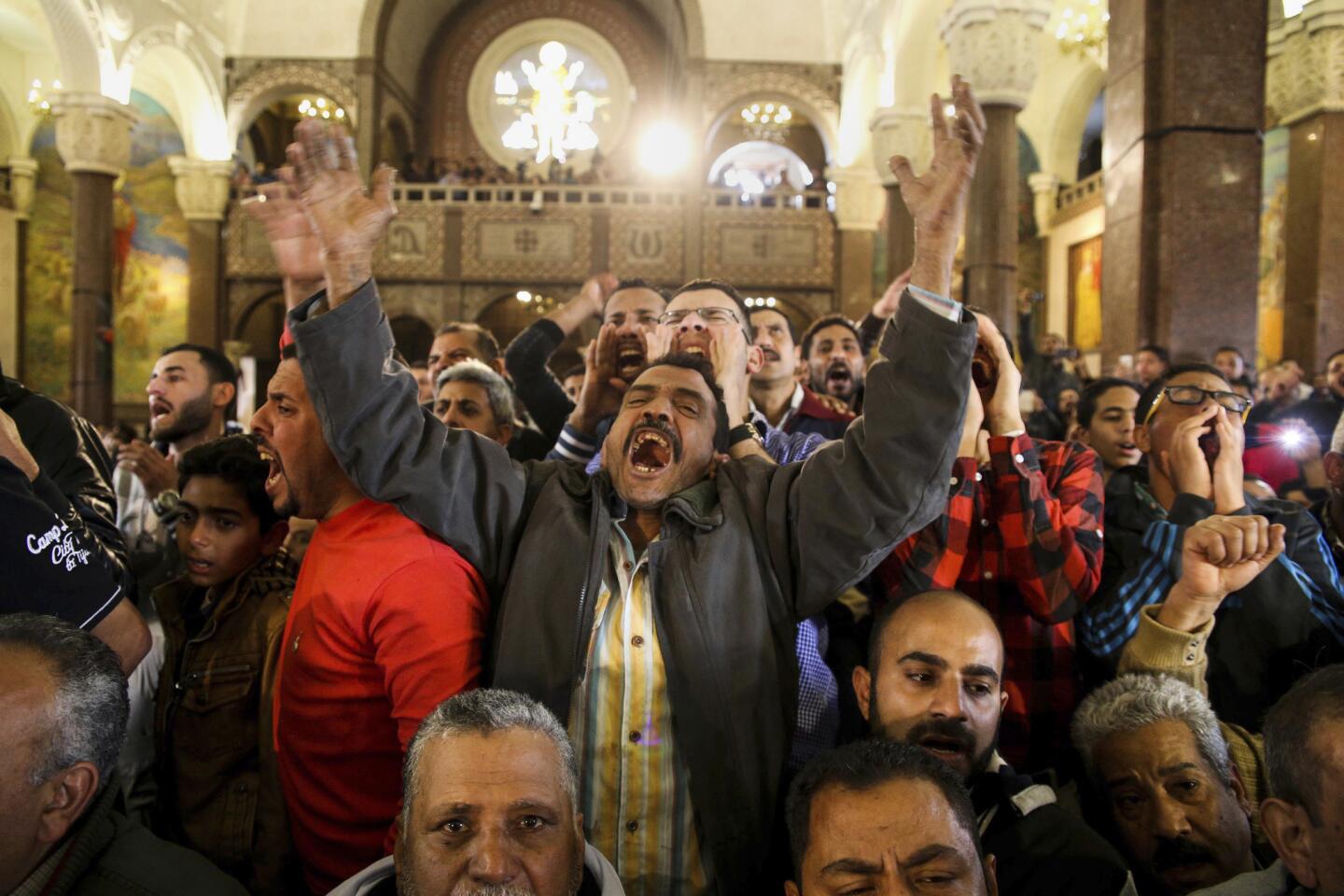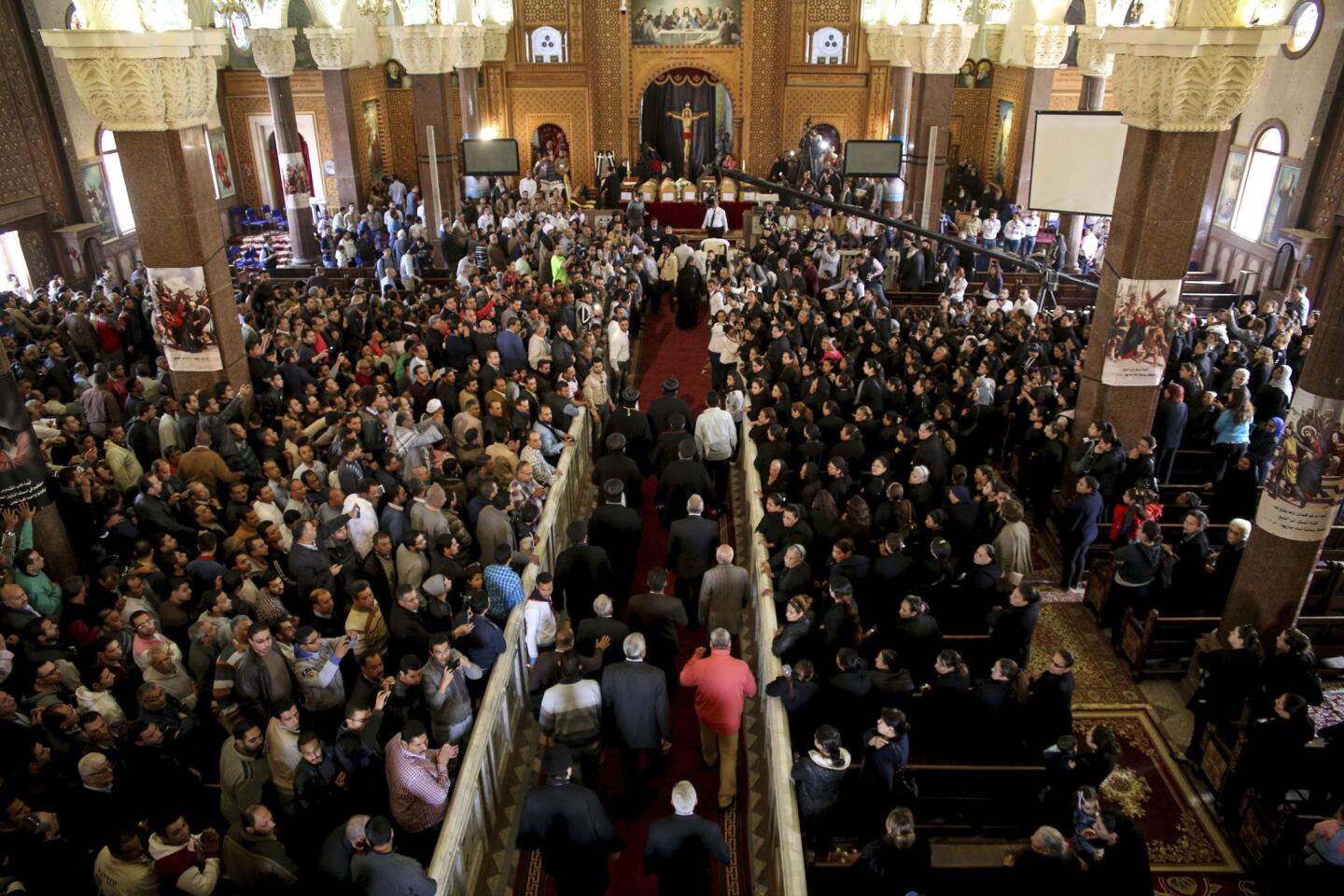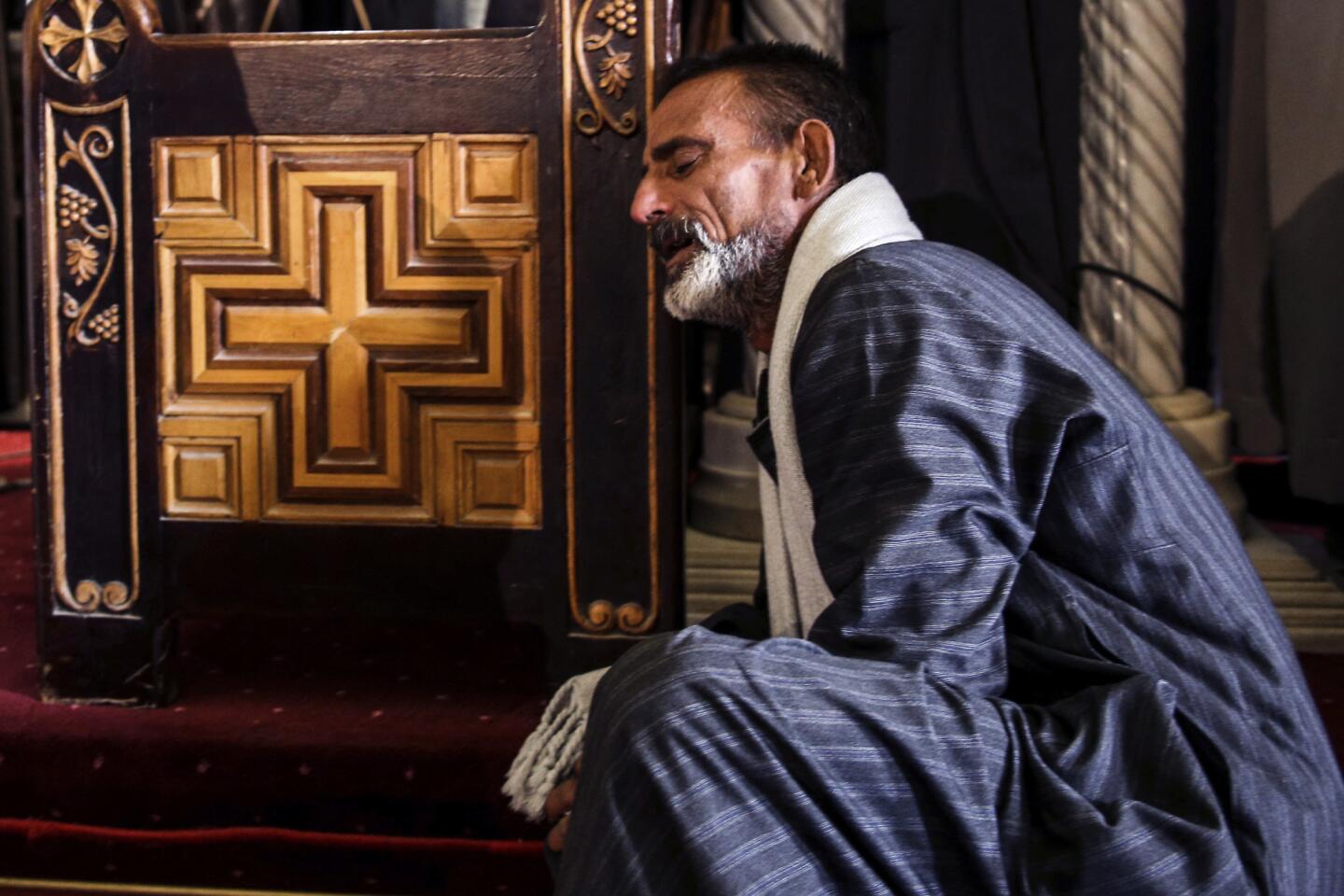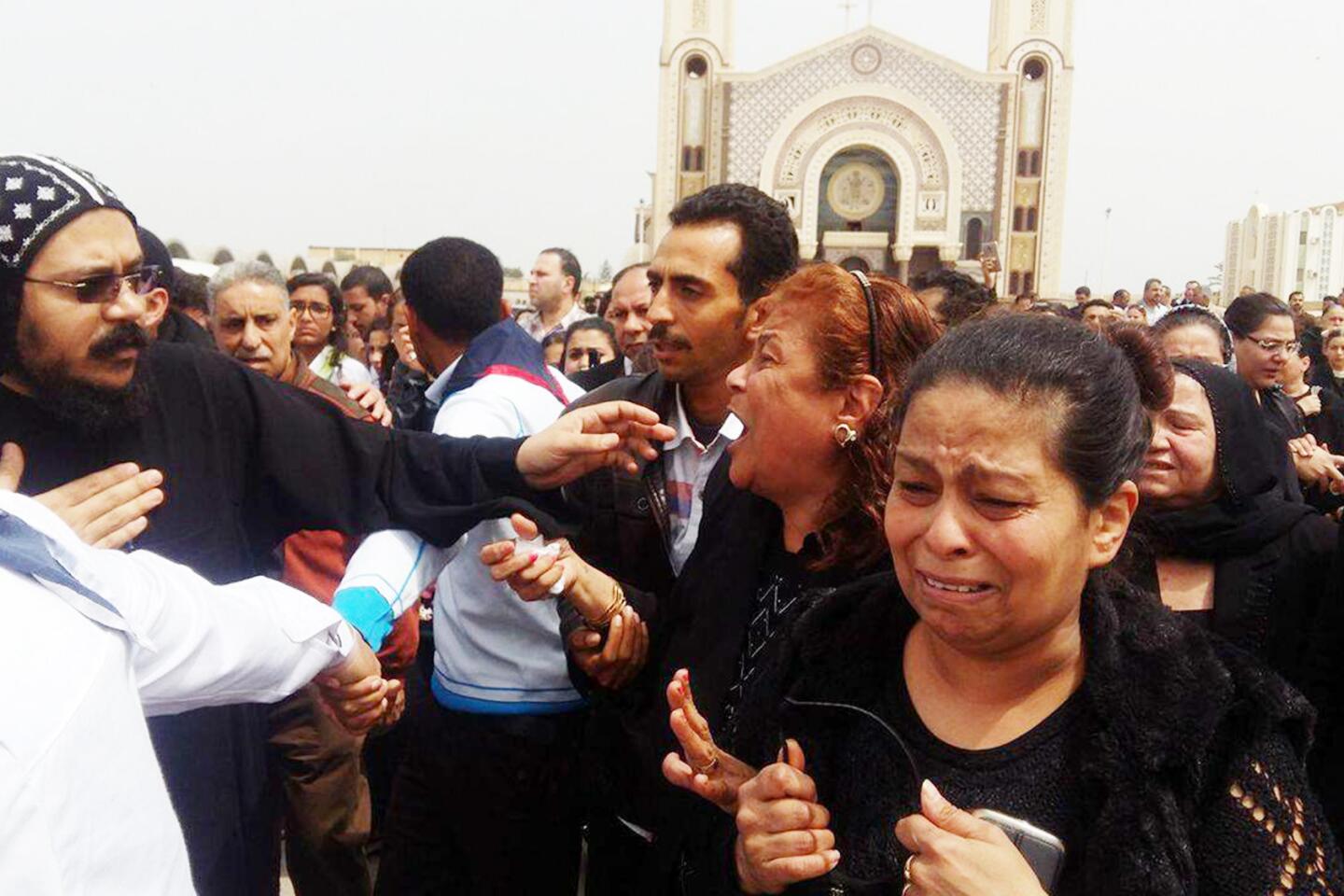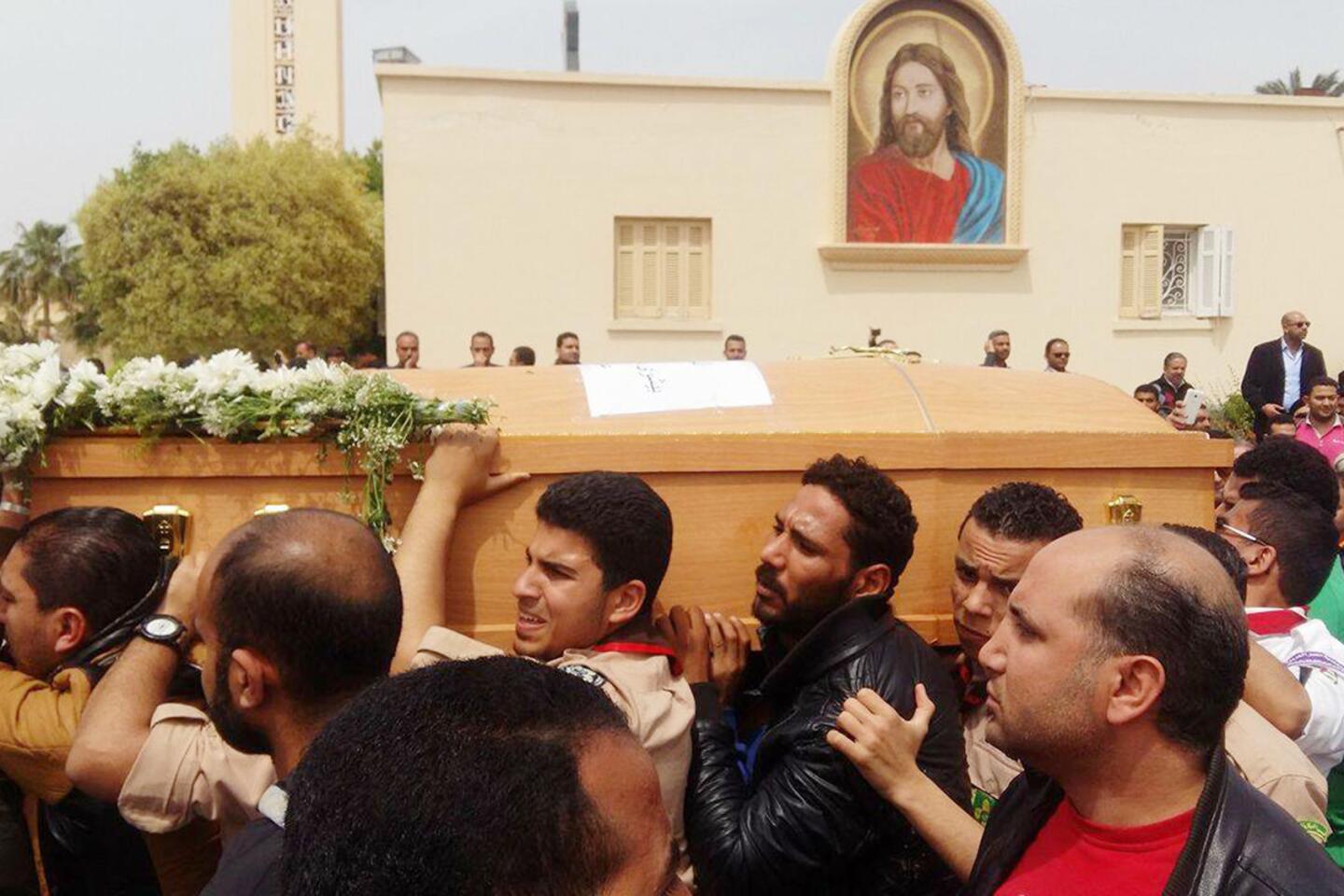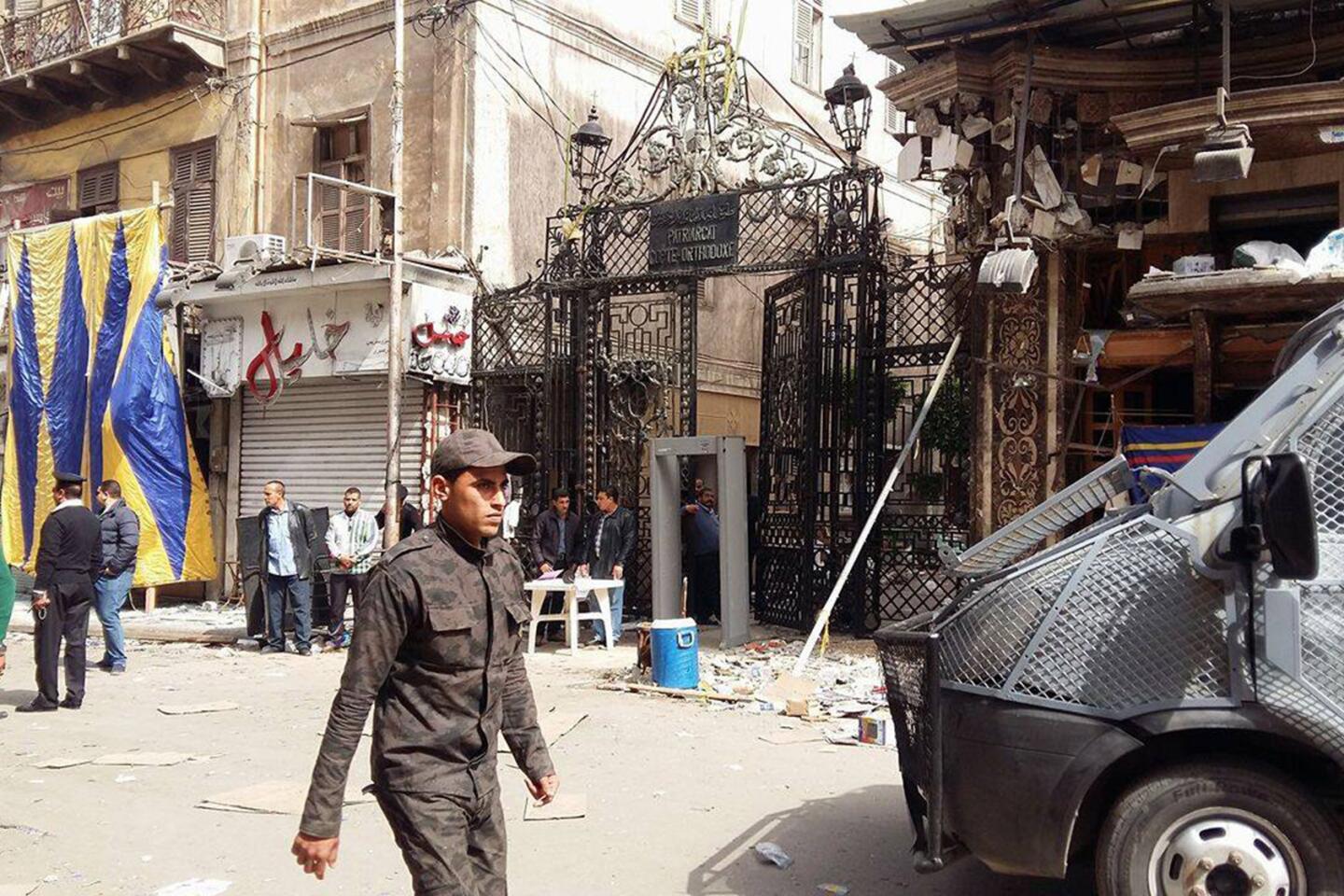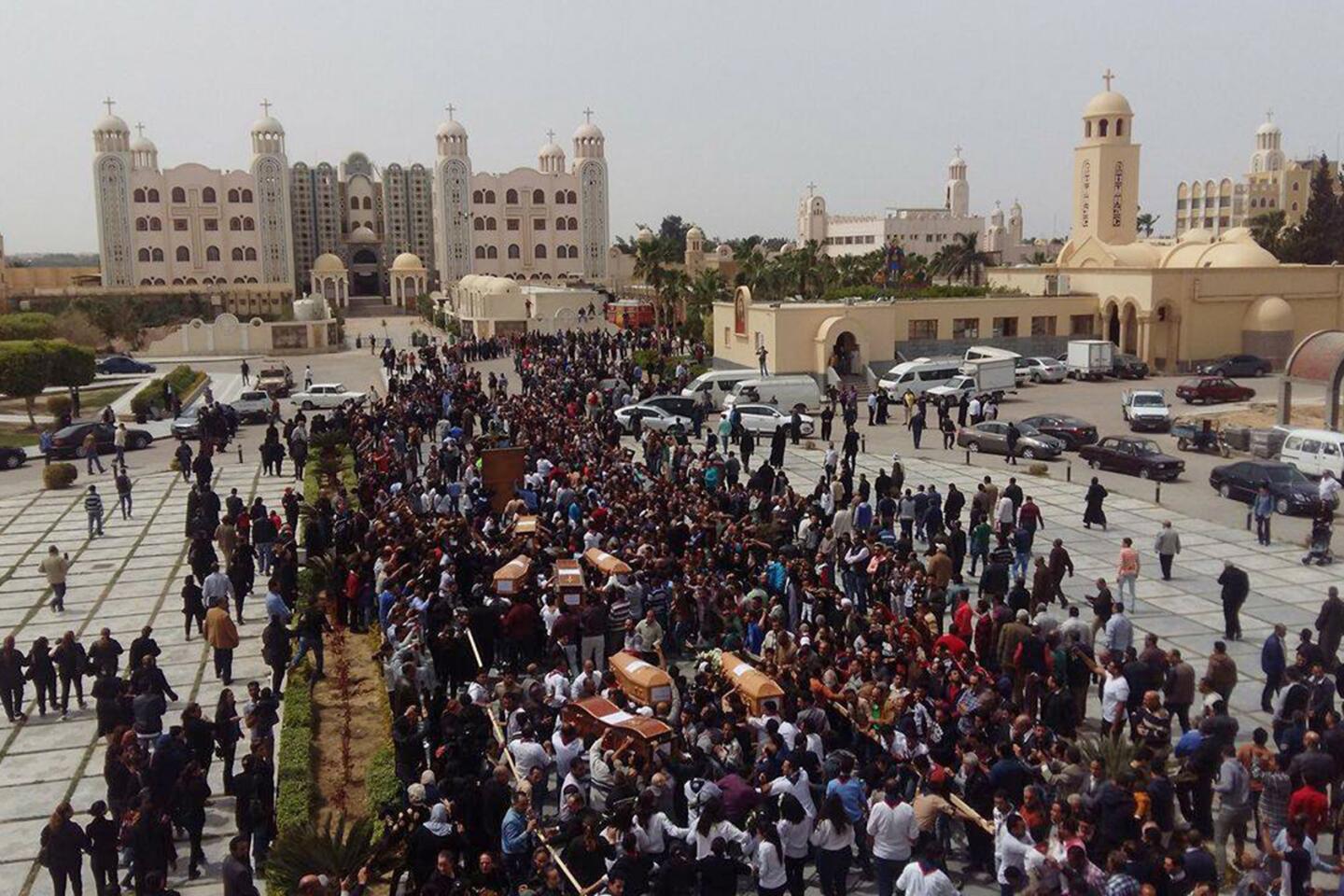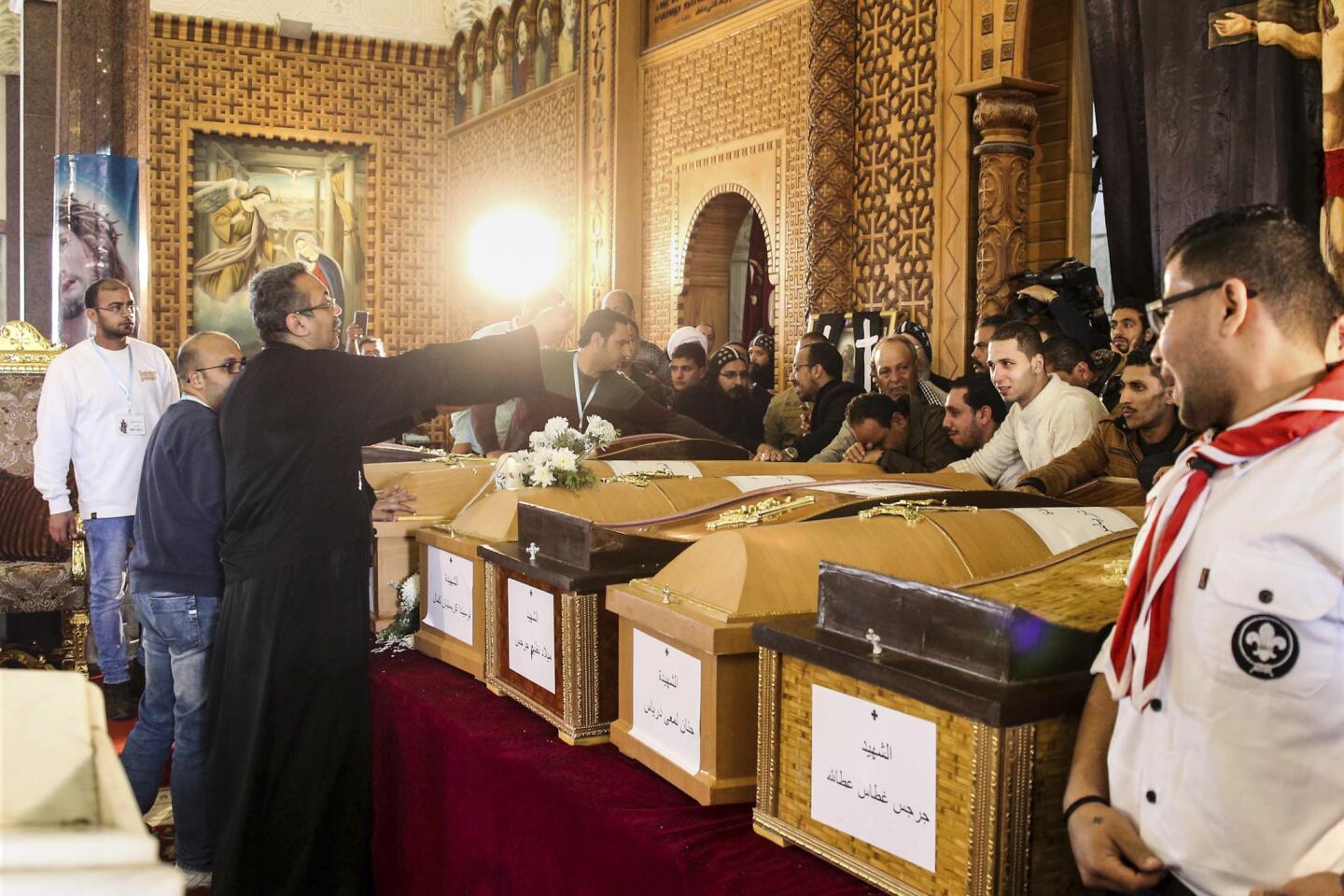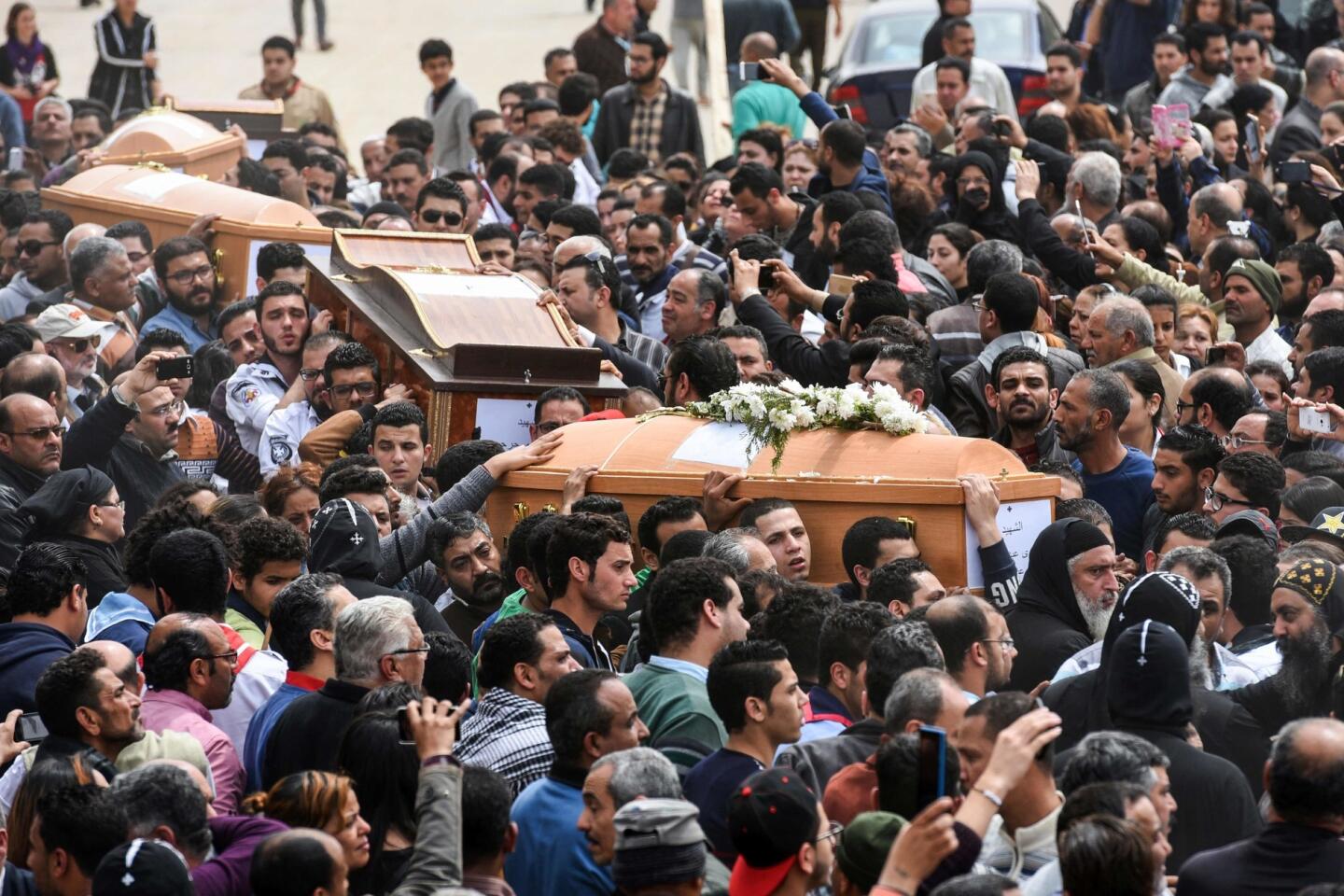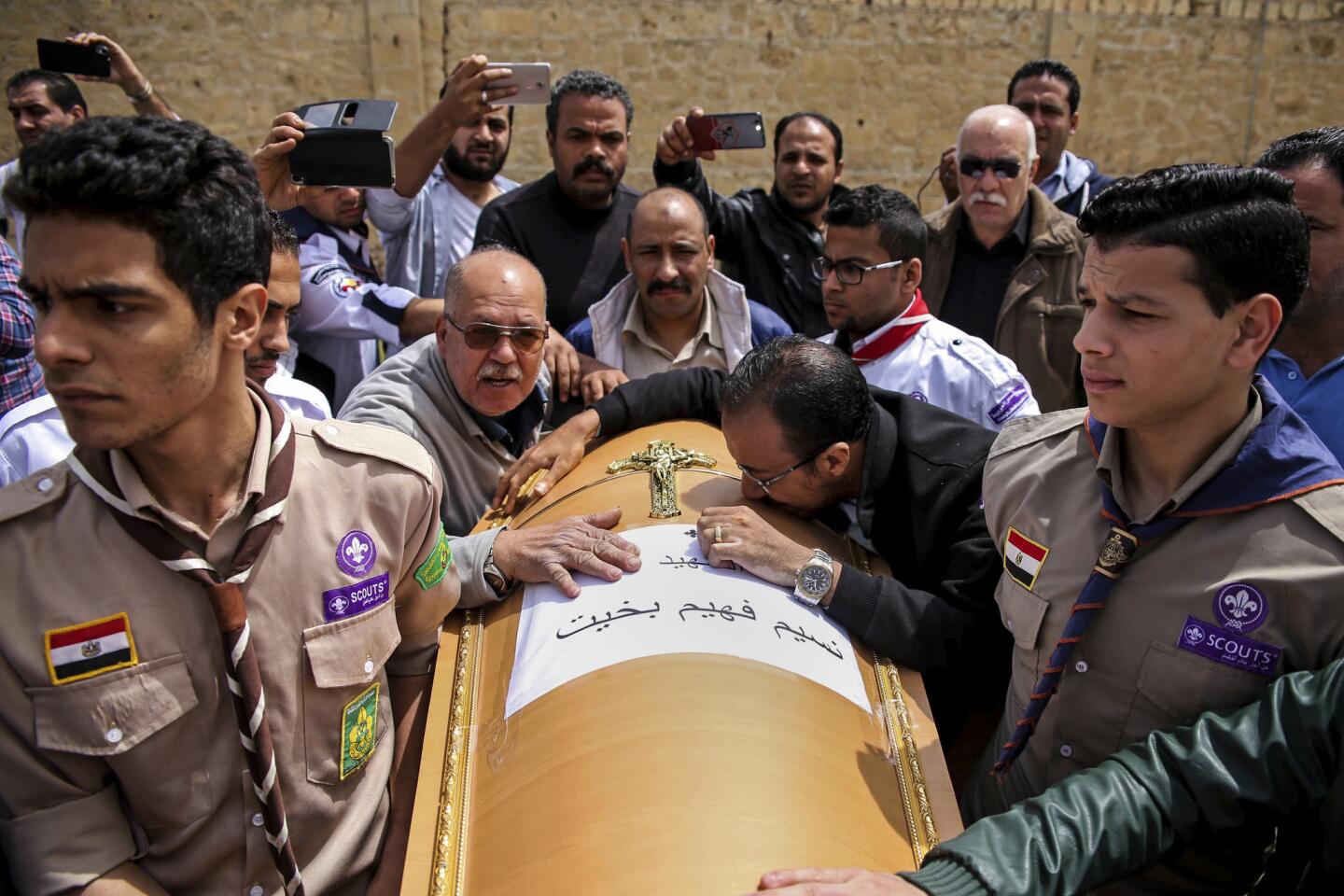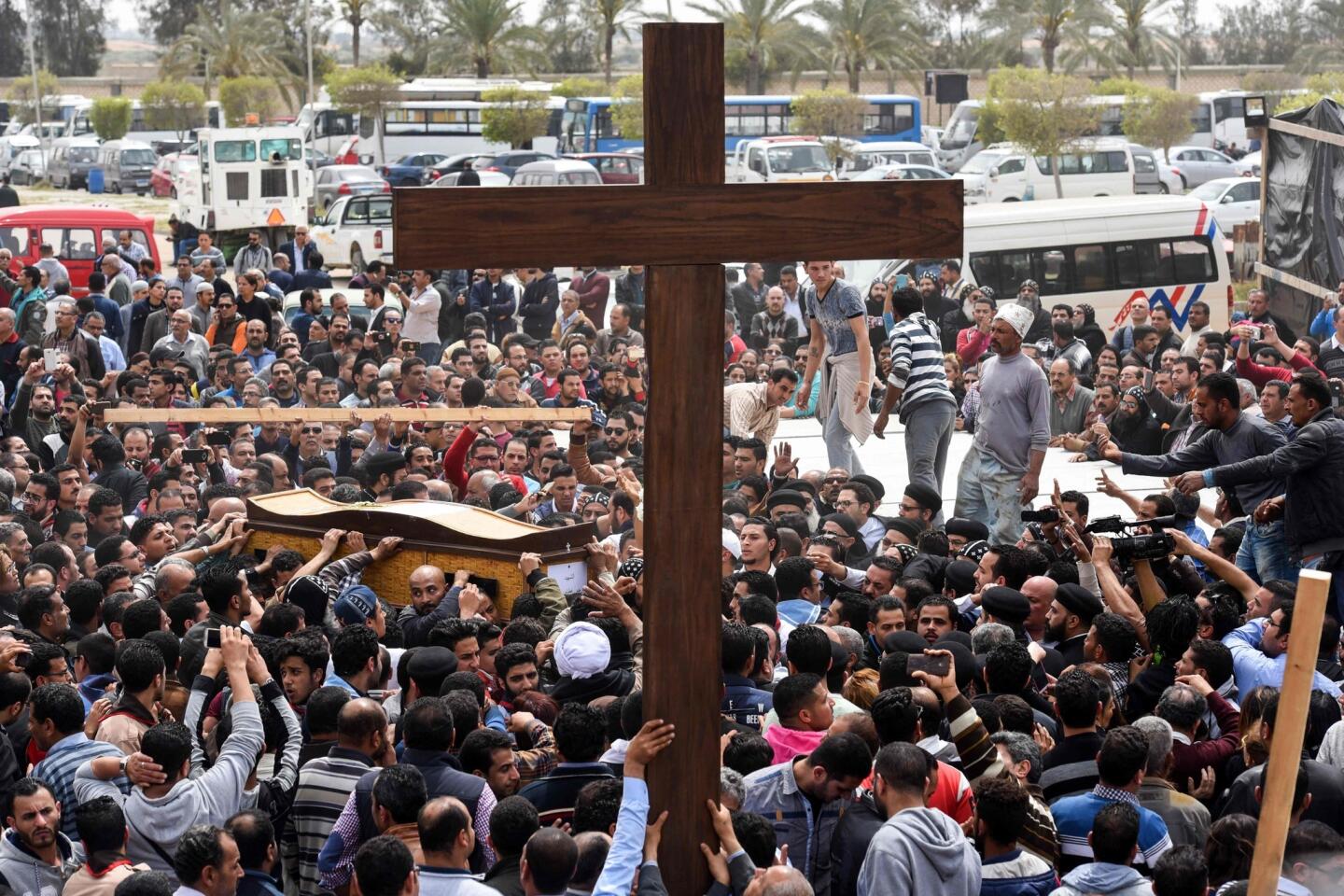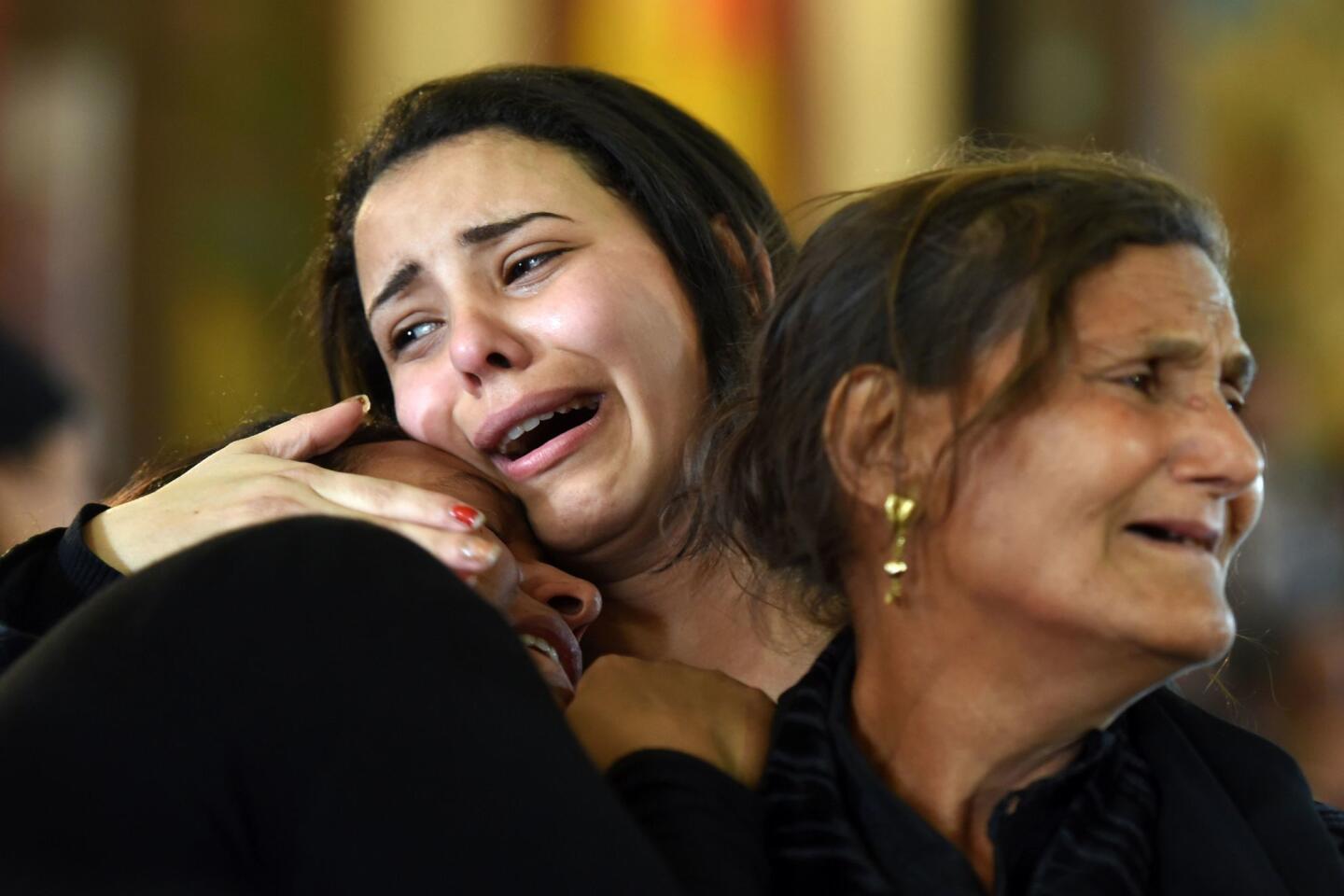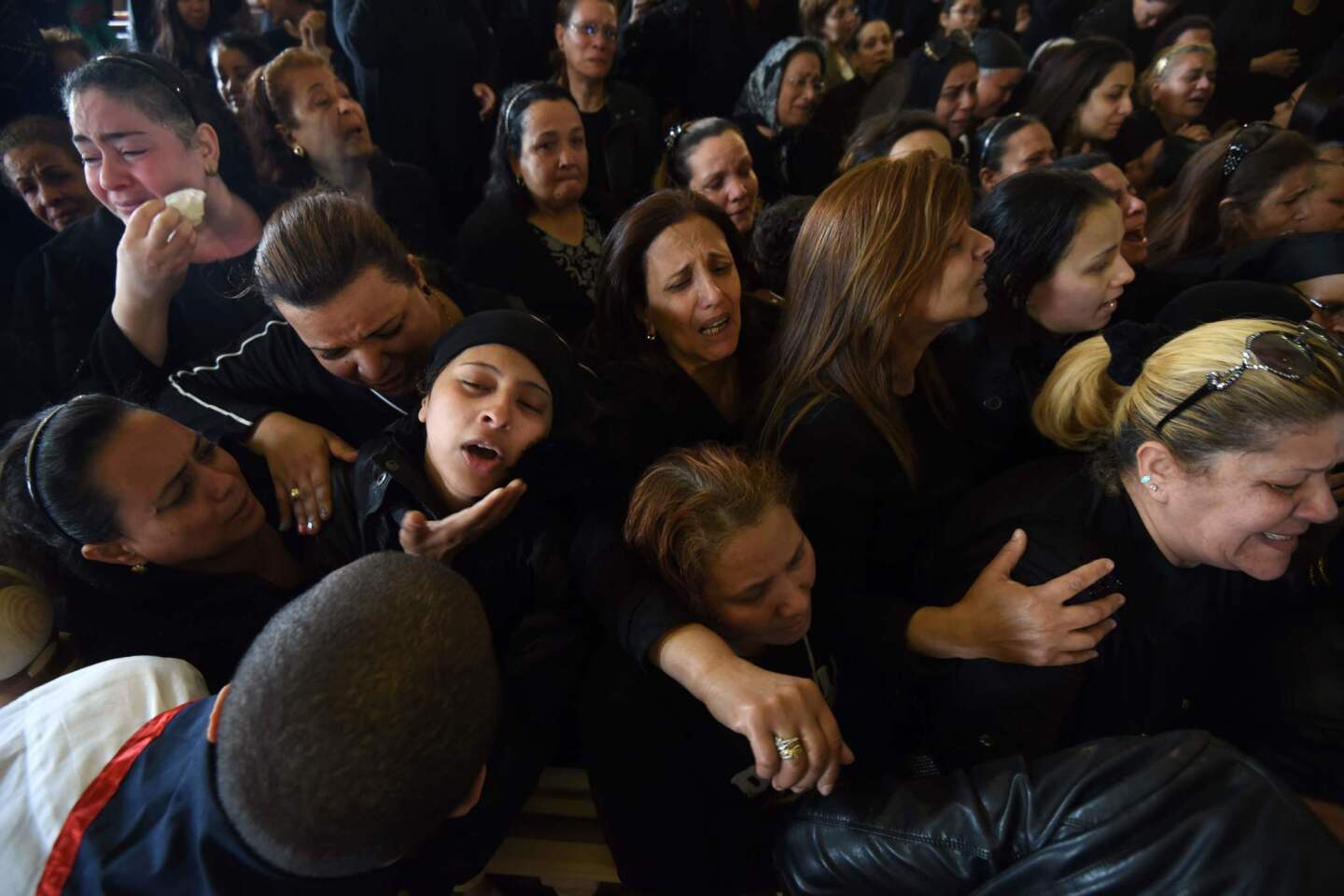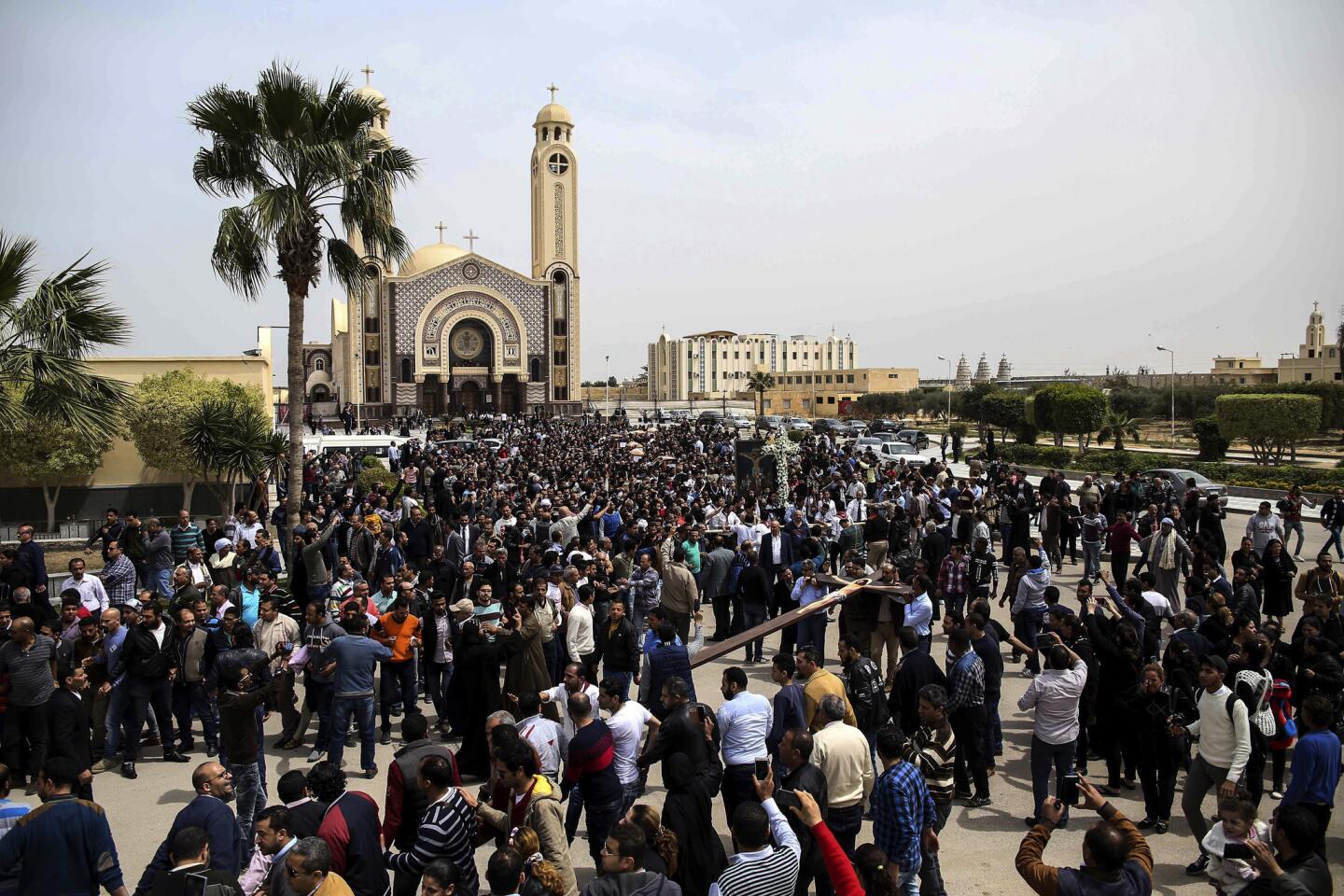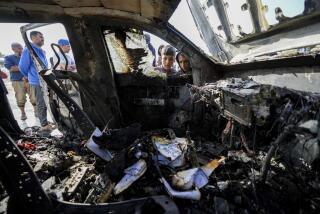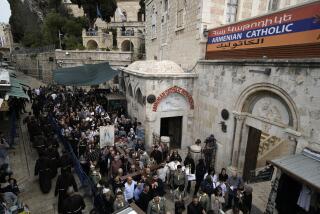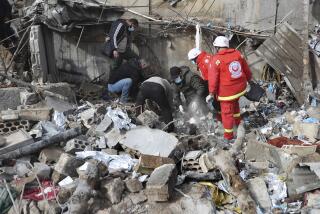Egypt’s Christians bury victims of bombings as Israel closes border at Sinai

The April 10 travel warning was unusual in its urgency and it is rare for the Taba crossing to be shut down. (Sign up for our free video newsletter here http://bit.ly/2n6VKPR)
Mourners gathered Monday to remember Coptic Christians killed in two deadly Palm Sunday church bombings as militant attacks continued in the Sinai Peninsula.
Israel closed its Taba border crossing to those departing for Egypt after its anti-terrorism office warned of an “imminent” militant attack there.
The Israeli military said a rocket fired from Sinai later exploded in an open field, causing no injuries.
Intelligence Minister Yisrael Katz said Israeli authorities picked up signs that a potential “terror attack” was planned against tourists in the Sinai, home to several popular resorts on the Red Sea—and to a violent insurgency affiliated with the militant group Islamic State.
The Israeli border closure came hours before the start of the Passover holiday, when Sinai is a popular vacation destination for Israelis. It also comes before a scheduled visit by Pope Francis to Egypt to mend ties with Muslim leaders.
At least 45 Christian worshipers were killed and more than a hundred wounded during the Palm Sunday attacks at churches in Alexandria and Tanta, one of the worst terrorist strikes to rock Egypt in recent history.
Funeral services held overnight for the 28 victims in Tanta, about 50 miles north of Cairo, drew thousands. In Alexandria on Monday morning, thousands more mourners gathered to pray for the 17 killed there.
Rida Ghattas Kamel, 55, a math teacher, traveled several hours by bus north to Alexandria for the victims’ funeral Monday.
Kamel, 55, is a Coptic Christian, and had watched coverage of the bombings the day before with his 20-year-old daughter, who he said became so distraught she collapsed.
“Why do such Muslim people kill us?” she asked him. “We live together. We eat together. We study together. Why do they hate us and kill us?”
Kamel didn’t have an answer. He said he wasn’t sure what to think of President Abdel Fattah Sisi, who declared a three-month state of emergency Sunday in response to the attacks.
“I hope it can help preventing the terrorism,” he said as he rode a bus to the funeral.
But he said he did not feel more secure. He felt caught in the middle.
“I do not think that the state of the emergency will protect Copts,” he said. “Strict Muslims… are bombing our churches and killing us to put Sisi in an embarrassing situation: that he can’t protect Copts.”
Victims’ relatives gathered in front of the altar during the funeral service Monday at the Coptic Orthodox Church of Alexandria, the largest Christian Church in the Middle East. They cried, prayed and sang songs to celebrate Holy Week, known in Egypt as the “Week of Pain.”
George Gad said his sister survived the attack unscathed, but his family has lost their sense of security, and the state of emergency is not likely to restore it.
“It will not help. Plus, it will affect the country’s economy in a negative way,” said Gad, 58, a mechanical engineer, as he cried over the dead. “I would love for my sons to leave the country.”
Some of the young Christians leading the funeral procession also said they wanted to flee the country.
Mark Emad Naguip, 17, of Alexandria said he doesn’t feel safe.
“Society treats us as second-class people,” he said.
Instead of making him feel more secure, he said the state of emergency threatened to take Egypt “back to the Mubarak presidential period,” an era of repression under longtime President Hosni Mubarak that ended with Arab Spring protests in 2011.
Immediately after Sunday’s attacks, Israel’s anti-terrorism office had advised Israeli tourists in Sinai to return home, and those planning trips to cancel.The government statement said intelligence information showed “increased activity by Islamic State militants” in Sinai as the group loses ground in Iraq and Syria.
Battlefield losses are giving militants “motivation to carry out terror attacks in different arenas,” the government statement said.
Tourism has declined in Sinai since 2013, when the Egyptian military overthrew elected Islamist president Mohammed Morsi and the Islamic insurgency intensified.
Nassar reported from Alexandria and Hennessy-Fiske reported from Irbil, Iraq
molly.hennessy-fiske@latimes.com
Twitter: @mollyhf
More to Read
Start your day right
Sign up for Essential California for news, features and recommendations from the L.A. Times and beyond in your inbox six days a week.
You may occasionally receive promotional content from the Los Angeles Times.
